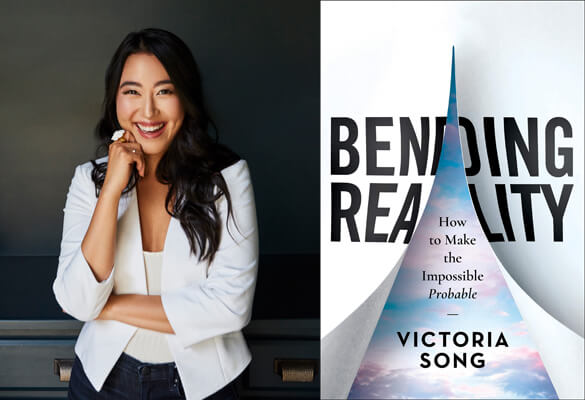What is it that you’re looking to achieve? Do you want to reach your personal peak without burning out? Do you want to be a better leader? Are you looking for more fulfillment? Are you thinking about how you can leave a meaningful legacy?
What I’ve observed is that everyone is in one of three stages of their journey.
Stage 1
This is the stage where you experience the most contraction. It’s about proving something—wanting to go from nobody to somebody. “Do I matter?” is what you want to know in this first stage. Establishing you’re smart, worthy, lovable, good, important, and valuable drives achieving and striving here. If you can’t prove this, you fear rejection. Fear shapes your personality, behaviors, goals, and things you do and don’t do.
Stage 2
In the second stage, contraction relaxes as you learn that people would actually pay you for your natural talents and gifts—to be yourself in your zone of genius. You realize, “I do matter!” You begin to live more from expansion than contraction in this second stage.
You may still enjoy some validation, approval, and applause to feel good in this stage.
Stage 3
In the final stage, you say, “Now I want to work on something that matters.” You want to use your gifts for good and focus on your contribution to the world. The question becomes, “What matters to me?” vs. “What do I get applause for?” or “What am I still trying to prove?” What you want, what brings you aliveness, and what humanity needs begin to intersect in stage three.
You go from living and working from the space of “Do I matter?” (phase 1: wound) to “I DO matter!” (phase 2: gift) to “I want to work on something that matters” (phase 3: contribution).
What stage are you currently in?
For most, it takes their whole life and career to enter stage three. Now that you know how to ride contraction into expansion, you can enter stage three whenever you decide to. These are not binary states; these are layers that get peeled back like an onion. As your nervous system unravels, you can peel back deeper and deeper layers. You continue unfurling by processing your emotions and sensations. It’s key to stay present and engaged with feeling whatever arises so you can go further, peeling back more layers each time.
The challenge is that when our nervous system is tight and we’re in contraction, we don’t see the places we’re lying to ourselves.
Here are a few examples of questions that are simple to ask, but not easy to answer:
- Are you staying in a job you’ve convinced yourself you have to stay in to feel financially secure?
- Are you staying in a relationship because you’ve convinced yourself it’s best for all involved?
- How often do you talk yourself into doing things you don’t want to do?
- How often do you talk yourself out of things you want to do?
- Do you mentally justify why you’re not listening to your heart?
- Do you avoid uncomfortable conversations because you don’t want to make someone feel bad?
- Do you keep yourself busy, never making enough time to slow down and face any uncomfortable feelings below the surface?
- Where are you letting what you get approval, applause, and validation for shape who you are and what you do?
- Do you value safety over truth?
- Do you pretend not to know the answers to these questions?
Taking an honest look at where you override your truth for safety will give you insight into the places you may be lying to yourself.
When we stand in truth, we stand in expansion and life appears to flow. There’s a coherent resonance and clarity that rings from truth. Author Caroline Myss said, “There is another altitude to life, and the air is sweet.” When there are places within ourselves we’re uncomfortable going, we seek to control the world, people, and circumstances to keep it from triggering those parts of us. Can we own our contractions, all our parts, and not be horrified by our shadow?
From what I’ve seen, we all have narcissistic qualities. The ones who fear their darkness the most, unwilling to feel their contractions, are the most narcissistic. They struggle to feel others’ emotions because they haven’t yet acknowledged their own. Bring your full and honest awareness to your contractions. A shift in your inner acceptance activates a far more expanded consciousness. When there is no longer any place you’re unwilling to feel and face, you can trust yourself.
When you catch your ego judging or feeling superior, you can say, “A part of me is feeling judgmental, and that’s okay, I accept all of me.” This acceptance allows you to stay curious and explore this part of you that likes to judge. It allows you to see your own game more clearly because while shame keeps your game in your blind spot, acceptance enables you to more easily tell yourself the truth.
Remember, your shadow is merely the lens you have on reality when you’re in contraction. Acceptance leads to expansion, which brings your shadow out of the dark.
Collectively we now understand that hurt people hurt people. Wound-up nervous systems act from contraction. Do not make any decision or take any action from there. Contraction creates further contraction. The only thing to do in this state is feel it to release it. Expansion is who we are once we release our contractions. Get back into expansion and think and act from there.
When you are unwilling to do the work of processing your emotions and sensations and uncoiling your nervous system, you will struggle to stay with a viewpoint you disagree with or do not understand. You’ll quickly enter binary, black-and-white thinking and judgment, and have difficulty letting in more information. The loss of control and fear of the unknown can be so uncomfortable that you’d rather create a false sense of certainty.
It comes down to how honest you are with yourself. What is your relationship to truth? Do you avoid looking at hard or uncomfortable things? Do you stay in confusion or ambiguity to avoid facing it? Do you downplay how bad things are, or how much you want things to change? Do you fear how the truth will change your life? Can you stand in your truth without knowing whether you’ll be met?
Excerpted from Bending Reality: How to Make the Impossible Probable by Victoria Song
Victoria Song is the Leadership Advisor to successful founders and CEOs of the world’s fastest growing technology companies and celebrities with power, platform and influence. She is the author of Bending Reality: How to Make the Impossible Probable. For more information, please visit, www.victoriasong.me.






